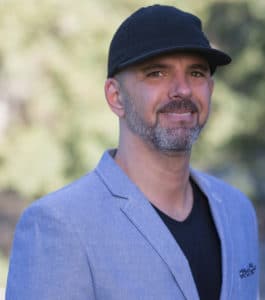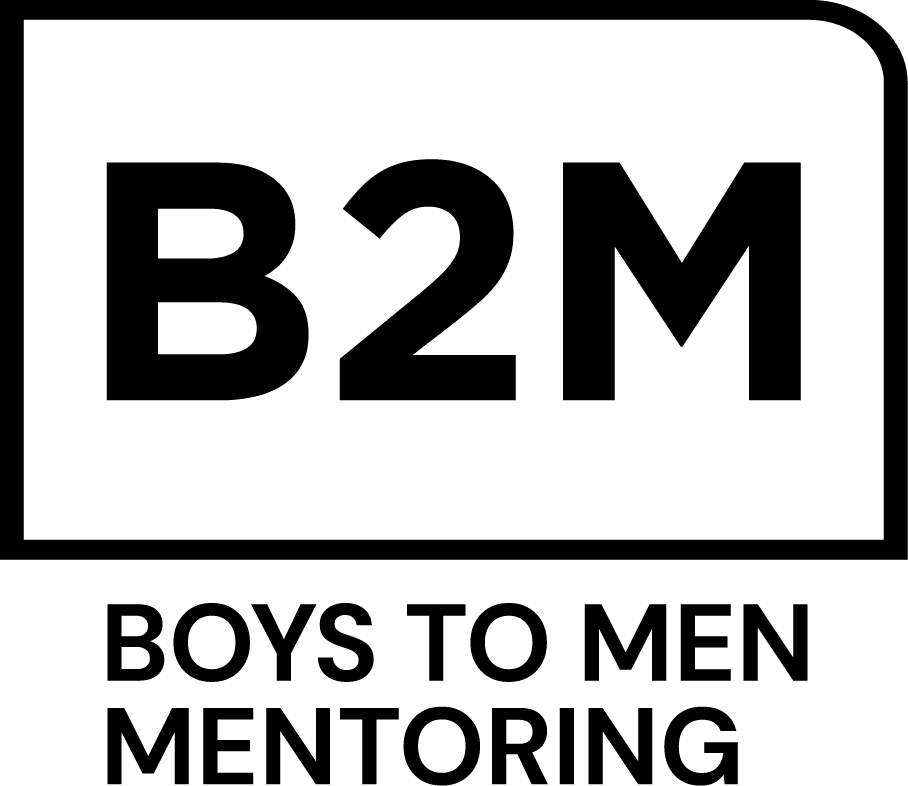
Pictured above: Volunteer Mentor Chris Rubin
1. When did you first hear about Boys to Men Mentoring (BTM)?
I first heard about BTM in 2006, via the CEO of a company I was working for at the time. The annual corporate donation was going to BTM, and I asked him more about it. He told me I should talk to Craig… Then I met Craig and Joe, when I participated in the training experience—Reclaiming Your Teenage Fire weekend—soon thereafter.
2. How long have you been a mentor?
Since 2006. But once I moved to San Francisco in 2010, and there was no program here, I had to focus my efforts with other organizations. I’ve been teaching/mentoring critical thinking and creativity at a local high school via Junior Achievement, and I ran a circle of boys in a middle school via YMCA’s “Reach & Rise” program. All along, just waiting for my chance to get involved with BTM again, whenever it might finally be available. From that very first phone call with Craig, I knew this program was something special, and different from many other similar orgs that I looked into. The lack of any dogma, or religion, or curriculum of any kind… that, IMO, is what makes it so special, and universally appealing to any boy, or their family, in support of his participation.
3. Why did you decide to participate in the Virtual Mentoring Program (VMP)?
Building on my previous response, COVID-19 hit. Then, I heard there was a way to get involved—be of support to these young men—even though I don’t live in San Diego. So I wrote to Rose/Marco to ask if I could help. The virtual groups were a great way for me to be of support, even though I don’t live in SD anymore.
4. How is VMP different from other BTM programs?
Mainly that it’s remote/virtual. Other than that, it feels pretty much the same, in a good way. The young men still show up, ready to participate. Same for the mentors. Aside from that specialness of being together physically, since that’s not possible right now, this is for sure the best solution in the meantime. Moving forward, it could also potentially be useful for schools/regions/boys who might not (for various reasons) be able to participate in person, i.e. we could potentially expand the reach of the program via VMP.
5. What do you like about the VMP?
Mainly that I get to show up as a consistent, focused, caring man in these young men’s lives. That is all I wanted, as a young man myself, and I couldn’t ever find it. It feels beyond gratifying—nourishing, even—to be able to play that role for this next generation of future leaders. I love the idea that this work—supporting these young men—can and will have long-term impact on the future of our nation, and perhaps even our sense of national community. Virus or not, VMP gives these boys a venue to be heard, to be appreciated, and to feel—know—they are not alone, and that there are men—young and old—who are there for them, no matter what.
6. What do you think can be improved?
Not much. Maybe if we can find ways to stoke attendance somehow—get larger numbers—that would be good. That said, the average group size has been around 8-10 (young men), and much larger than that might risk each boy not getting a chance to participate fully, not enough time. Maybe breakout rooms might help with that. I’d also suggest that we do a very quick “whip check-in” (like 45-90 seconds per person) at the very beginning of each session, so everyone has a chance to speak, right away. It also helps to orient everyone to the vibe among the rest of the group on the call. How everyone is feeling, who is struggling, etc. Often, we get right into the topic for the day, and merge that with the check-in, but I’ve noticed the elements of the basic check-in sometimes get lost, or missed. Better IMO to do both, separately.
7. Is there a story from a virtual group that you feel comfortable sharing?
Yes, but I won’t use names. The topic/theme for the session was heartbreak: When or where in your life have you experienced that, and how did you deal with it? I had my answer ready, knew what I was going to talk about, waiting my turn. Just before me, a young man shared his experience about a person close to them in their life who had just suddenly cut them off. No matter what he tried, this person would not even explain what he did wrong, what the problem was, etc. He spoke to the pain and confusion of that predicament.
I was nearly in tears as I heard him sharing this… It was basically my same exact story. Same experience. So then I shared mine, and it just felt so good to A) get it off my chest, but even more so B) to admire and applaud this young man for the way he handled the situation, and to express a sense of shared brotherhood with him. To make sure he knew that he wasn’t alone in that pain and confusion.
It was clear that everyone was moved by this experience, and many said so. Very compelling and gratifying experience for all, it seemed. Certainly it was for me.
*Special Note: This interview was conducted via email with volunteer mentor Chris Rubin who has been a Virtual Mentoring Program volunteer since the program launched in May 2020.
